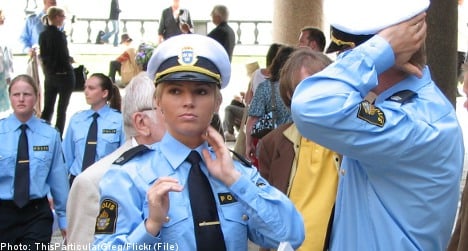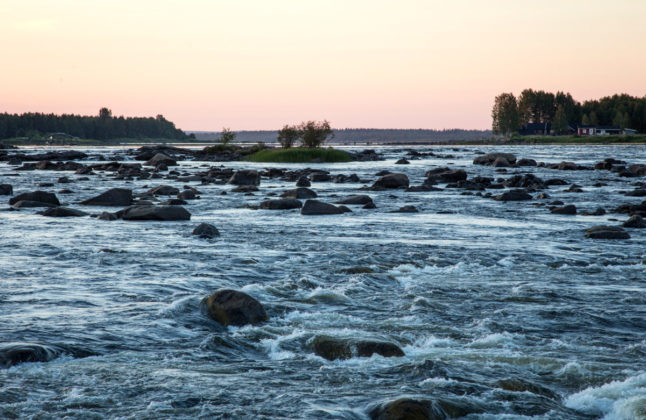The Centre for Justice (Centrum för rättvisa) has filed three writs against the board, alleging that male recruits have been denied places at the Swedish National Police Academy in favour of female recruits, despite the man having performed better in physical and language tests.
“If there has been violation of the law on admissions to the Police Academy, it is obviously very serious. Through this judicial process the questions will hopefully be answered,” said Clarence Crafoord, director of the Centre for Justice, in statement.
Crafoord argued that the issue is of extra importance “because the Equality Ombudsman has chosen to act extremely passively in the matter”.
The Local reported in July that around 80 complaints had been filed with the Equality Ombudsman (Diskrimineringsombudsmannen – DO) alleging they weren’t admitted to police training programmes because of their gender.
The Centre for Justice has now reported that this figure has risen to 130 cases of alleged discrimination.
DO announced a couple of weeks ago that it would open a dialogue with the police board, responsible for the academies in Solna, Umeå and Växjö.
The three cases set be tried concern two men from Malmö in western Sweden and one from Småland in south central Sweden.
“These men who applied for police training have been better than the women in both the language tests and physical tests, but despite this it is the women who have been admitted,” Clarence Crafoord said.
The men are each demanding 100,000 kronor ($15,000) in compensation.
Carolina Ekéus at the National Police Board press office told The Local on Monday that the board declined to comment on the case “as a judicial process has now begun”.
Ekéus furthermore declined to comment on the National Police Board’s recruitment policies.
Back in January 2009 the National Police Academy announced that, for the first time ever, women outnumbered the men among the new recruits in that year’s intake.
“We need people with different backgrounds and experience so that the police force is representative of the wider society,” said Monica Landergård at the police academy to The Local at the time.



 Please whitelist us to continue reading.
Please whitelist us to continue reading.
Member comments